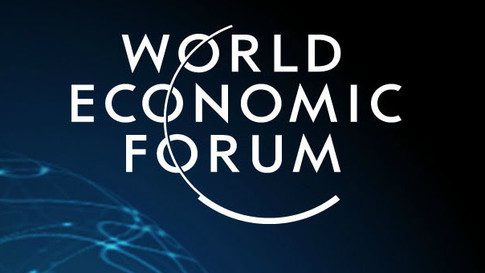Davos: In an era defined by technological evolution, India stands at the forefront as one of the world’s fastest-growing economies and a global hub for startups and digital innovation, the World Economic Forum said Monday.
The Centre for the Fourth Industrial Revolution (C4IR) India, liaison office of World Economic Forum (WEF) in India, launches its six-year impact journey report on the inaugural day of the WEF Annual meeting 2025 here.
The WEF said its partnership with India dates back more than 40 years.
Over the past four decades, this relationship has developed into a strong, multifaceted and meaningful collaboration with the national government, several state governments, business leaders across key industries and other important stakeholders, including civil society and leading experts, resulting in several impactful initiatives that have advanced shared priorities.
India’s advocacy for and pursuit of developmental templates where technology serves as a bridge rather than a barrier are highly relevant and the Forum is proud to act as its partner in shaping a more human-centric, planet-friendly and resilient future, the foreword of the report said.
The Centre for the Fourth Industrial Revolution (C4IR) India was launched in 2018 by Prime Minister Narendra Modi as a statement of the country’s commitment to harnessing emerging technologies responsibly and inclusively for societal good.
Today, C4IR India is not just a hub for innovation; it is a flagship centre of the World Economic Forum, exemplifying a vision for technology-driven development with impactful, on-the-ground results, the Forum said.
As C4IR India enters the next phase of its journey, the new report highlighted key milestones and emphasized the importance of multi-stakeholder collaboration in scaling technologies to address complex developmental challenges.
C4IR India said its accomplishments include AI-driven agricultural programs that boost farmers’ incomes, healthcare solutions that provide access to life-saving services, and sustainable urban development frameworks that improve the quality of life in cities.
These initiatives have been made possible through strong partnerships across the public and private sectors, academia, and civil society, with a focus on creating practical solutions grounded in responsible governance, it added.
“Over the past six years, C4IR India has emerged as a key hub for multistakeholder collaboration and has improved the lives of 1.25 million citizens through enhanced livelihoods and better access to healthcare. The centre has driven Fourth Industrial Revolution technologies across agriculture, health and aviation, setting a benchmark for transformative progress. As C4IR India continues to expand, it is now focusing on cutting-edge areas such as AI, climate tech, and space tech, with exciting potential for creating lasting value for society,” Jeremy Jurgens, Managing Director, World Economic Forum, said.
Krishnan, Secretary, Ministry of Electronics and Information Technology (MeitY) in India, said, “Our partnership with the Centre for the Fourth Industrial Revolution India focuses on developing a multistakeholder community to leverage Fourth Industrial Revolution technologies for critical challenges on health, education, smart cities and agriculture. AI for India 2030 is an important initiative in partnership with MeitY, enabling stakeholders across industry and startups to partner with government to realise the potential of AI.”
As India continues its rapid economic growth and strengthens its position as a global hub for digital innovation, C4IR India aims to reach 10 million citizens by scaling its flagship initiatives and upcoming projects.
These include the AI for India 2030 initiative, which seeks to unlock AI’s potential for societal benefit, the Space Economy initiative, aimed at positioning India as a leader in space technologies, and the Climate Technology programme, which will focus on developing climate-smart urban centres.
Additionally, the AVIATE India initiative will explore the future of aerial mobility to reduce urban congestion and improve rural connectivity.
PTI
